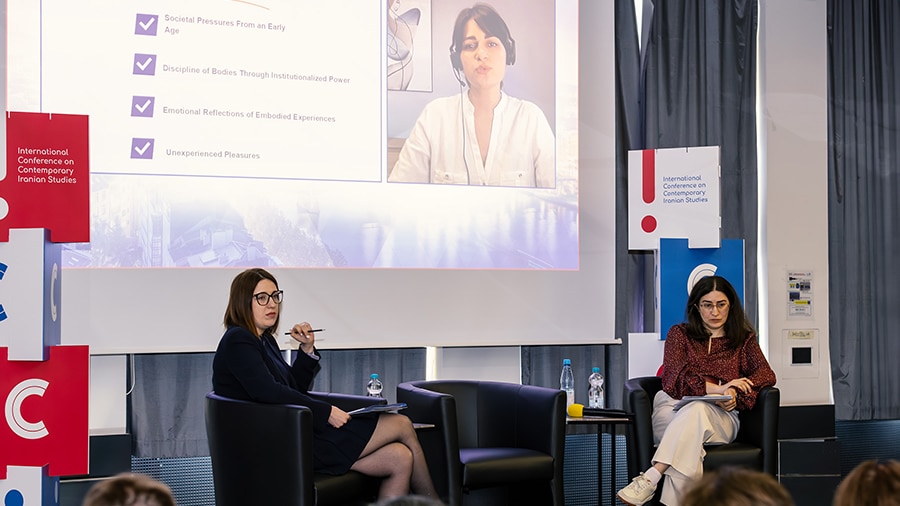Leyla Bostani
Bodies Never Forget: The Case of Lived Bodily Experiences of Iranian Women
Andishe Shamsi
Iranian Digital Feminisms: Discoursive Struggles on Digital Media Platforms
Moderator: Anahita Hosseini
Abstracts
Leyla Bostani
Bodies Never Forget: The Case of Lived Bodily Experiences of Iranian Women
This qualitative research examines the lived experiences of Iranian women under the mandatory hijab law, utilizing a sophisticated theoretical framework that merges Foucault’s concept of bio-power with Merleau-Ponty’s embodiment theory. It further enriches this perspective by incorporating feminist theories of embodiment, providing a comprehensive lens to understand the multifaceted dynamics of these experiences.
The research explores how women’s bodies have historically been a battleground for both oppression and resistance in Iran. By examining women’s socio-political circumstances, the study sheds light on the primary mechanisms and strategies the political power employs to regulate and control women’s bodies. Utilizing heartfelt narratives from in-depth interviews with eight Iranian women aged 25 to 45 focusing on bodily experiences, this research weaves together the experiences and resistances of these women in the face of compulsory hijab laws.
This research uncovers the profound implications of disciplining and politicizing bodies on individuals’ daily lives. It delves into the nuanced effects ranging from societal pressures and institutional power exerted by the educational system to the emotional repercussions and unfulfilled pleasures resulting from such suppression. It highlights how Iranian women navigate, perceive, and push back against socio-political structures that attempt to regulate their bodies and expressions.
Andishe Shamsi
Iranian Digital Feminisms: Discoursive Struggles on Digital Media Platforms
My research explores Iranian women’s activism and debates around gender issues on digital media platforms. Centring its analysis on the generation of narratives and images on Instagram, the research interrogates the production and circulation of feminist discourses by Iranian feminists and women’s rights campaigners.
In studying media practices and strategies for the self-mediation of activists, a digital ethnographic approach is applied. The main research question is: how are Iranian women’s issues and demands mainly framed in the self-mediated content of feminist activists on social media, and with which discursive frameworks and media strategies are different issues performed online?
The subsidiary research question is: how are these narratives shaped and constrained on the one hand, by affordances and mediation opportunity structure of digital media (Cammaerts 2018; 2015; 2013; 2012) and on the other hand, by the political opportunity structure of the country (Tilly and Tarrow 2015; Giugni 2009). I frame part of the activist’s digital campaigns as forms of popular feminism (Banet-Weiser, et al. 2020, Banet-Weiser 2018, 2018B, 2017), which centre on the mediation of individual woman empowerment and self-branding, particularly by Iranian feminists in the diaspora.


